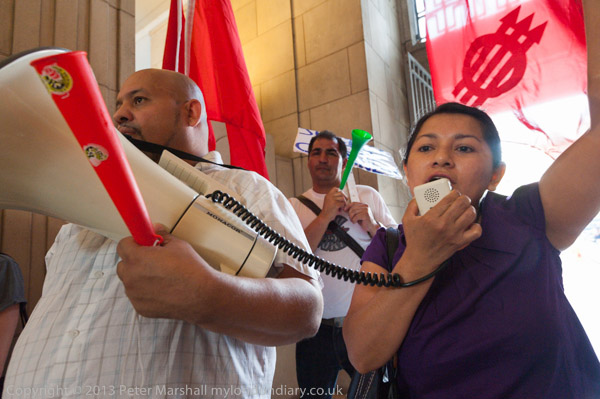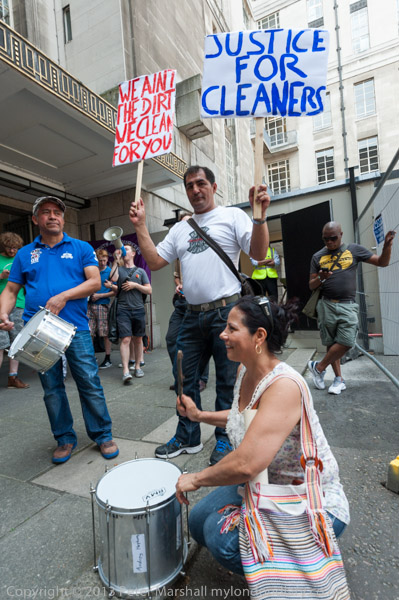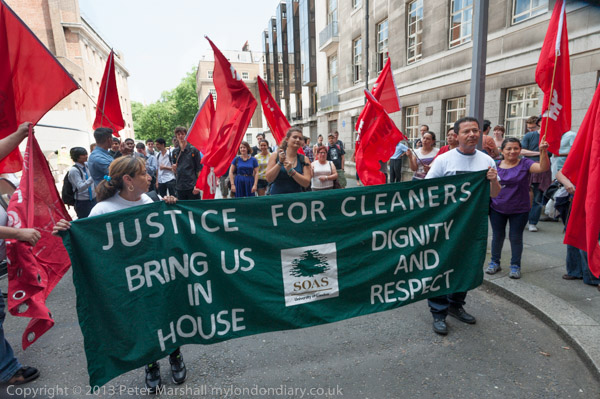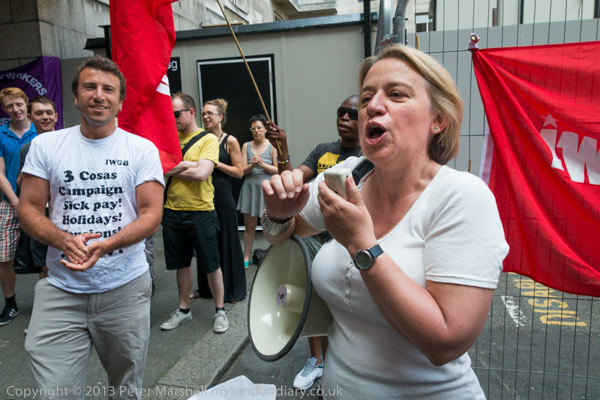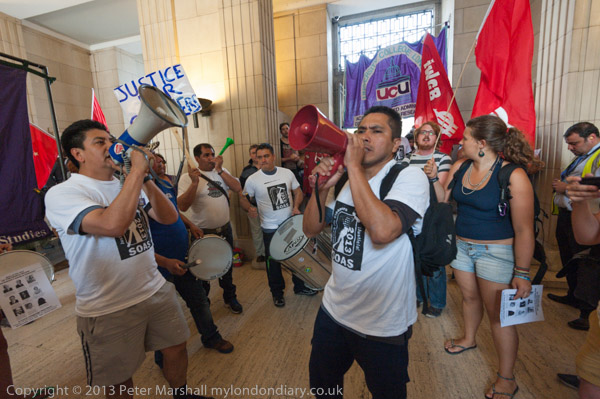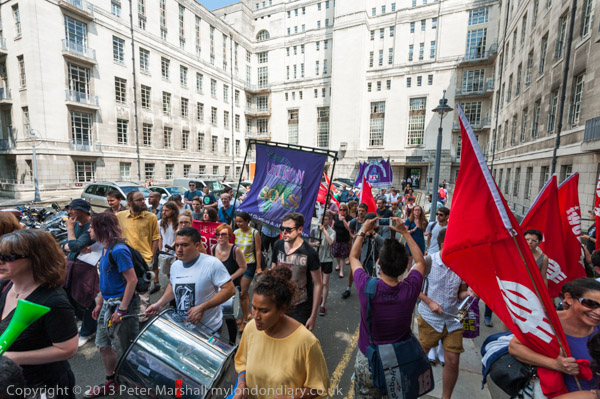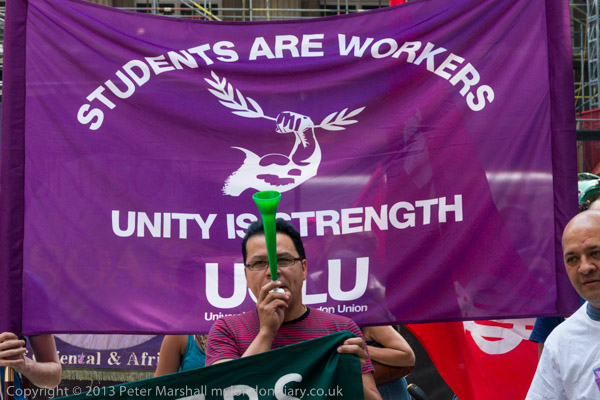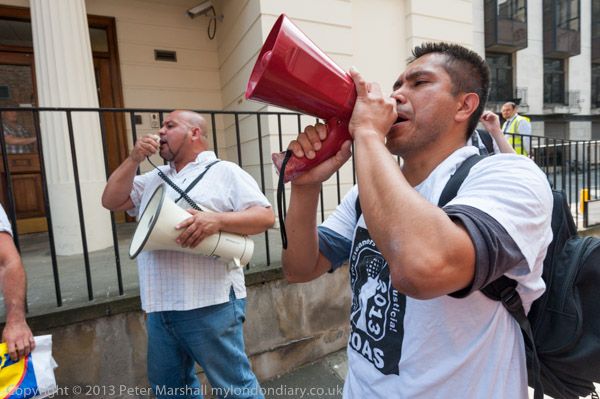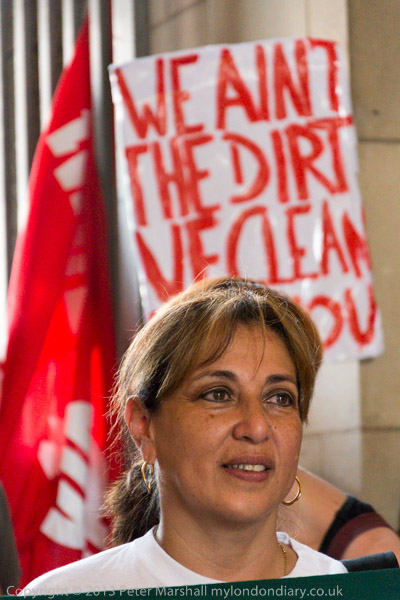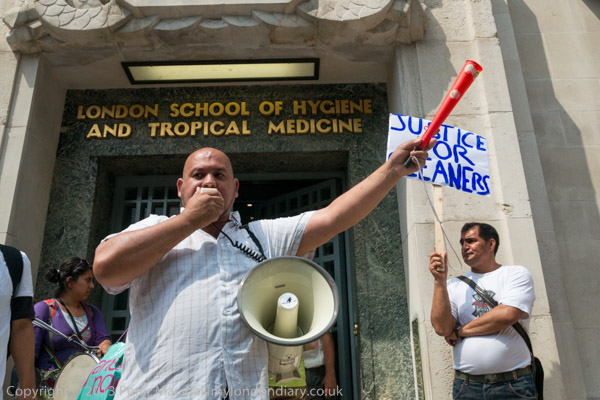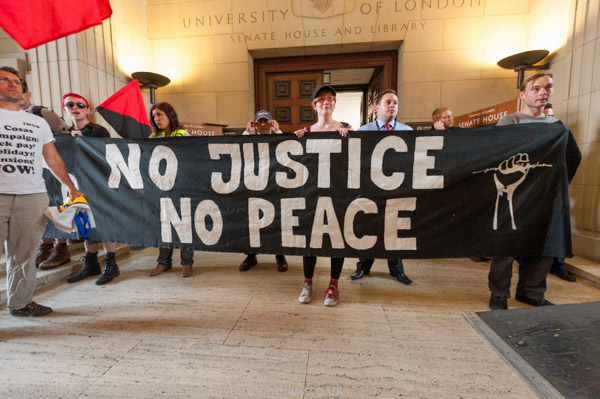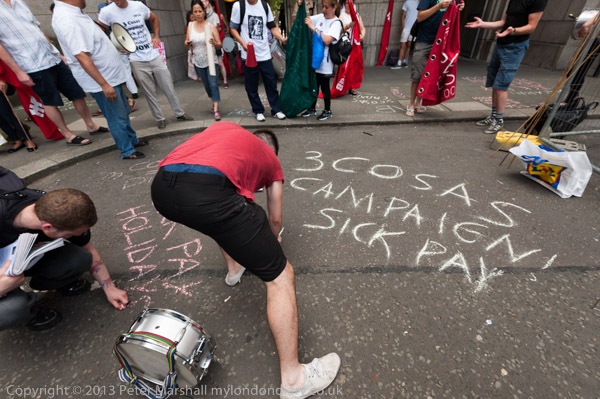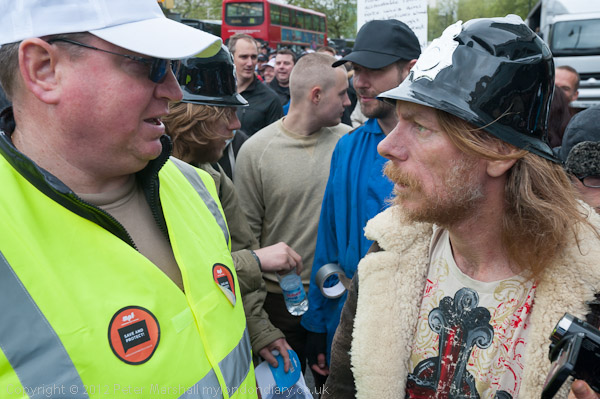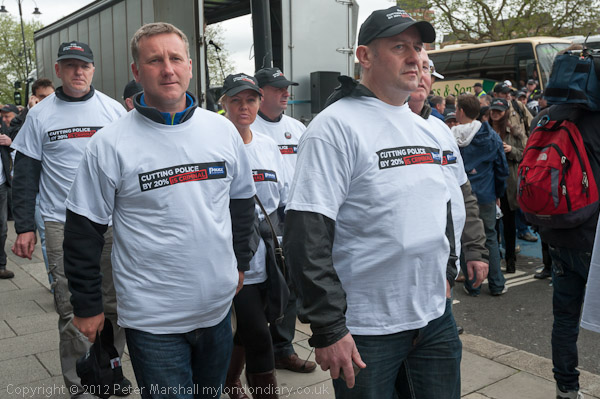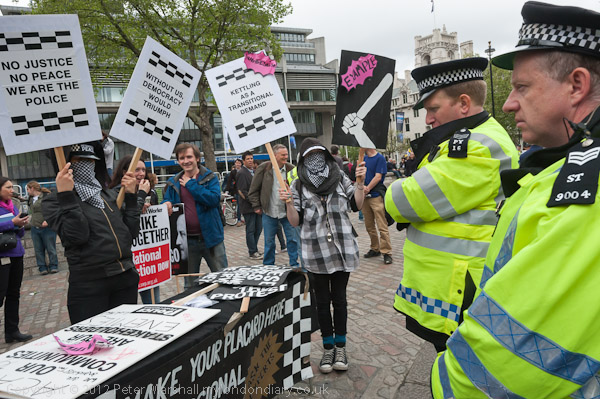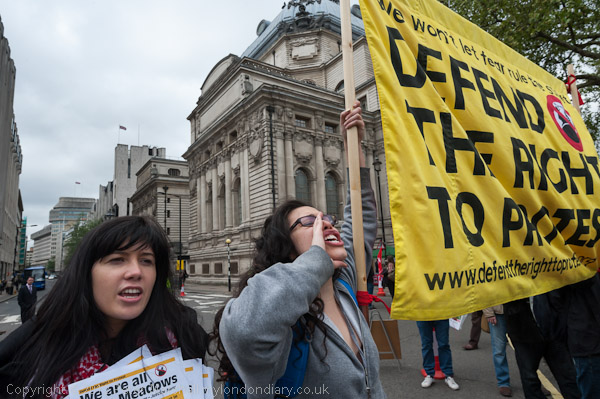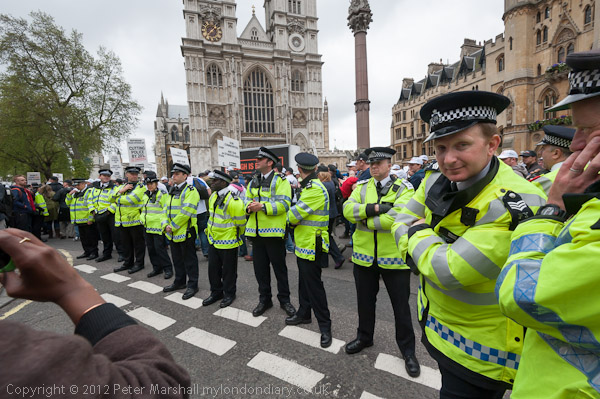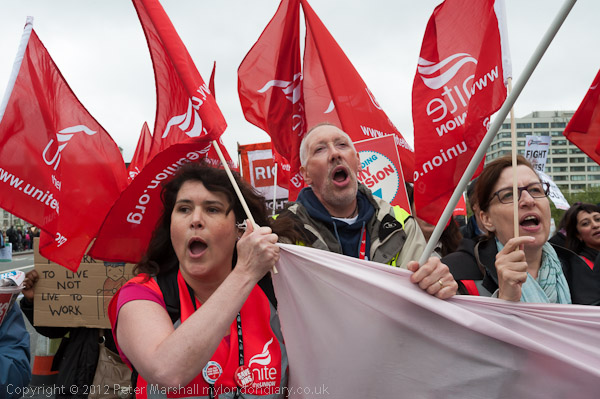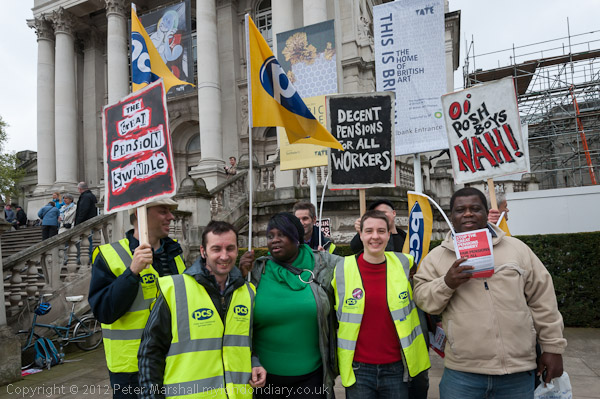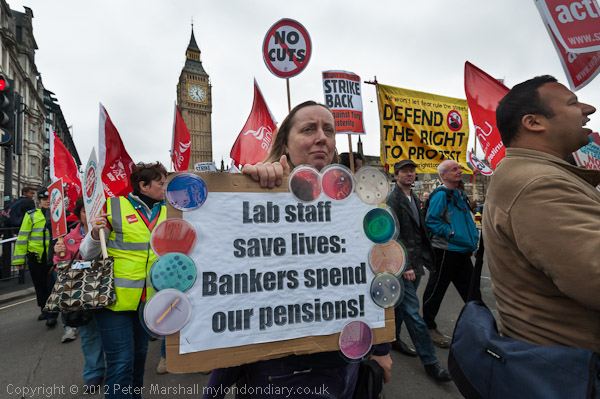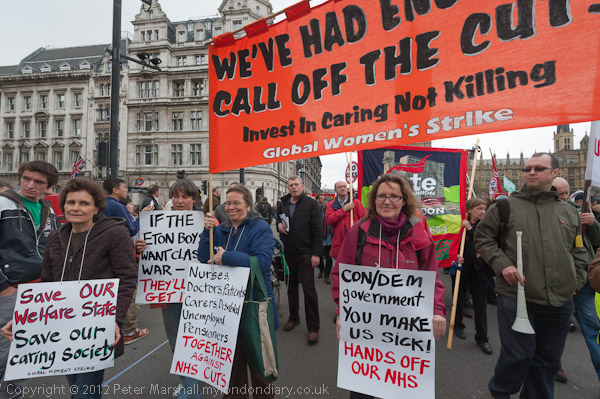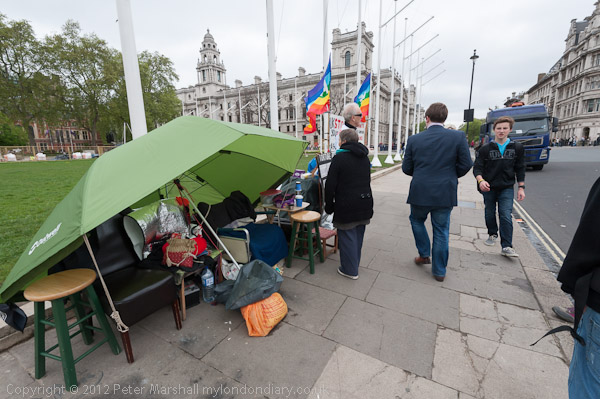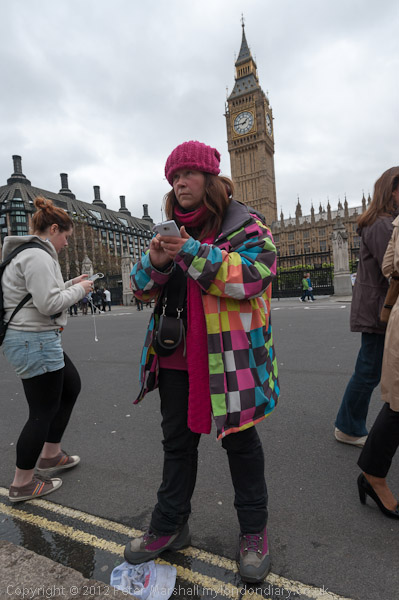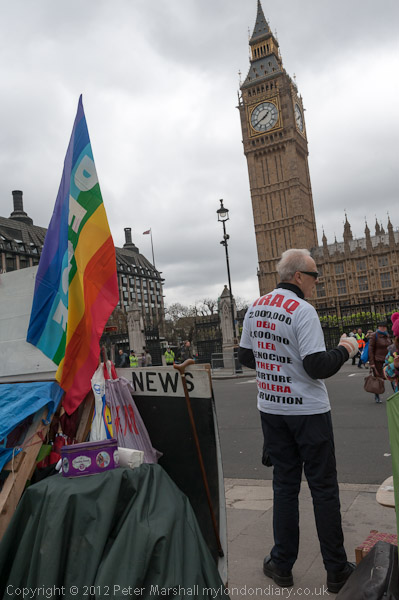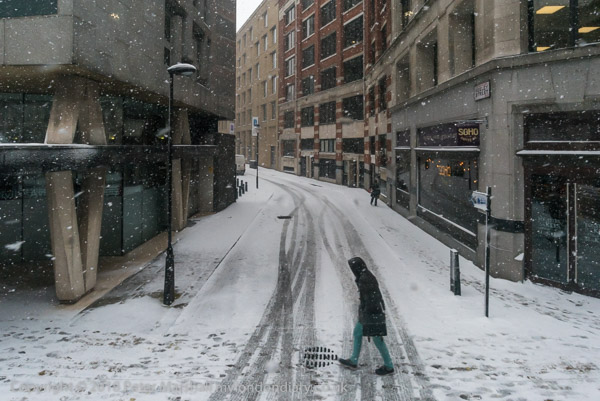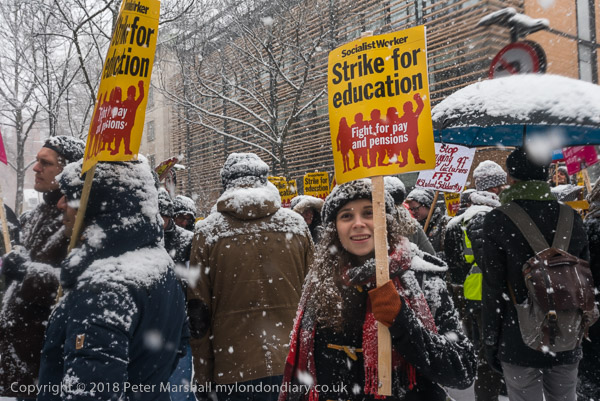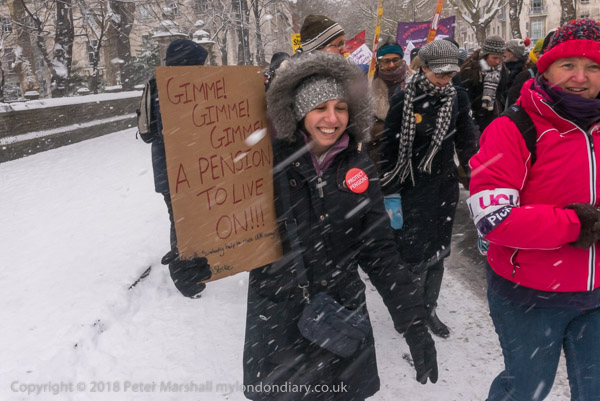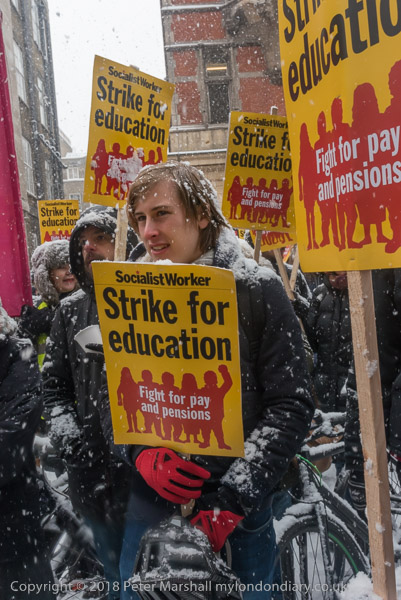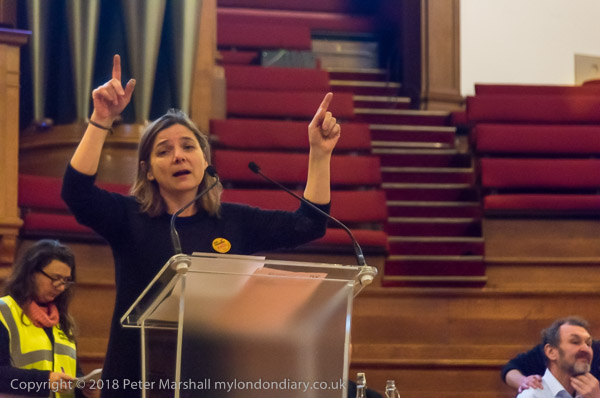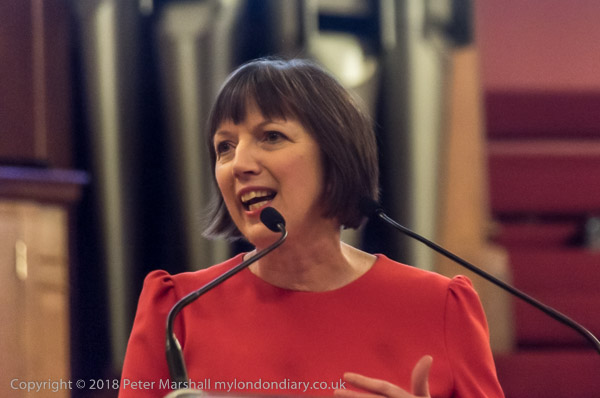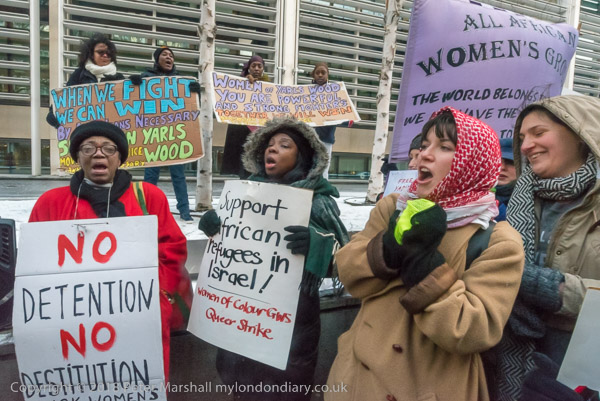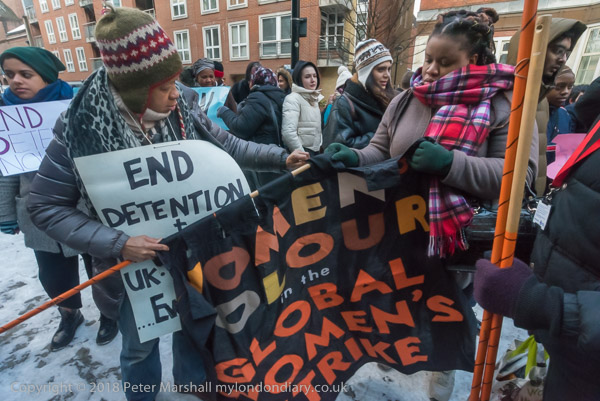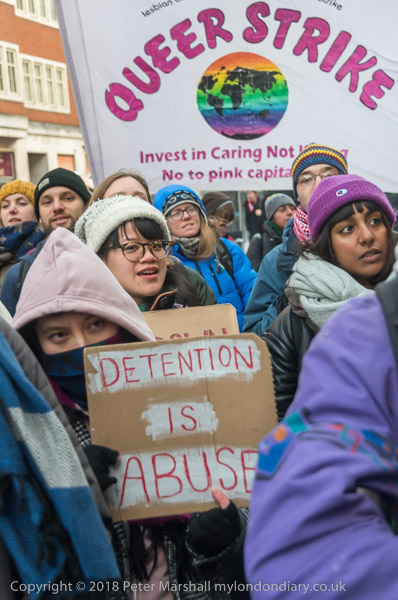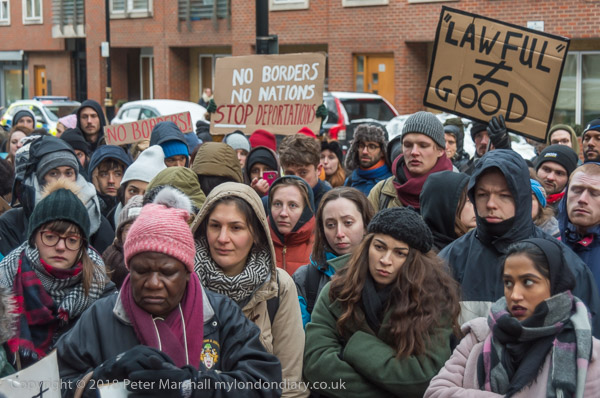End outsourcing at University of London: Five years ago, on Wednesday 25th April 2018 I was with workers from the Independent Workers Union of Great Britain – IWGB on the first day of a two day strike at the University of London central administration by over 100 cleaners, porters, security officers, receptionists, gardeners, post room staff and audiovisual staff.
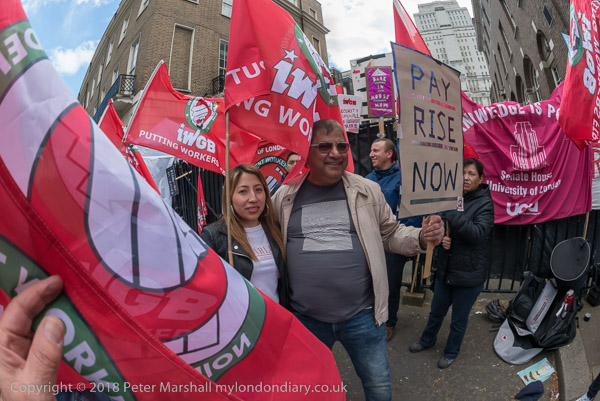
They were calling for an end to the outsourcing of their jobs in the university to various contracting companies and demanding to be directly employed by the University, and receive the same conditions and benefits as directly employed colleagues. As well as the workers, academics, students and other trade unionists came to support them in a lively rally outside the gates to Stewart House in Russell Square..
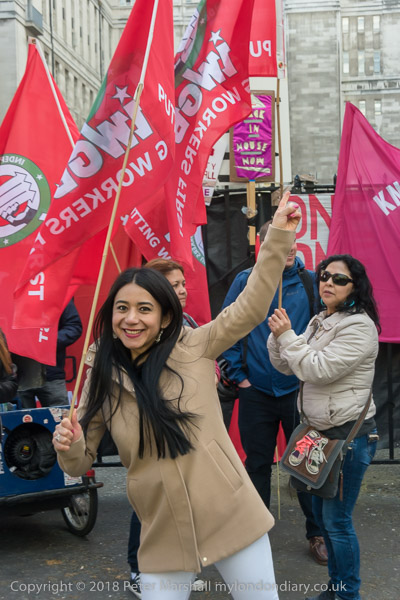
The rally was part of a successful campaign led by the IWGB which began in 2010 and ten years later the university central administration changed to directly employ porters, receptionists, post room and audio visual technicians, with cleaners following shortly after in November 2020.
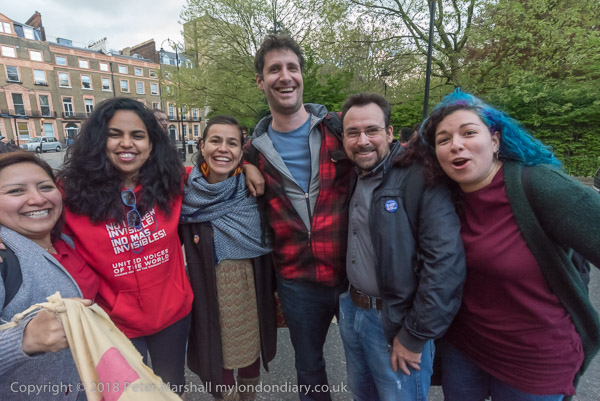
The IWGB are still campaigning to bring workers in-house in other universities in London, including UCL, and they and other unions have been successful elsewhere. United Voices of the World are one of these and some of their members had come to the rally to show their support.
Here’s what the IWGB say about their campaign:
Cleaners and security staff at universities across London are organising for equality with directly-employed staff!
Outsourced workers suffer from far worse terms and conditions than directly-employed colleagues, facing no sick pay, bare minimum holiday entitlement and meagre pensions. Bullying, mismanagement and discrimination by unaccountable outsourced managers are common.
Workers in the IWGB union are leading the fightback. Through public campaigning and strike action we can end outsourcing at London universities!
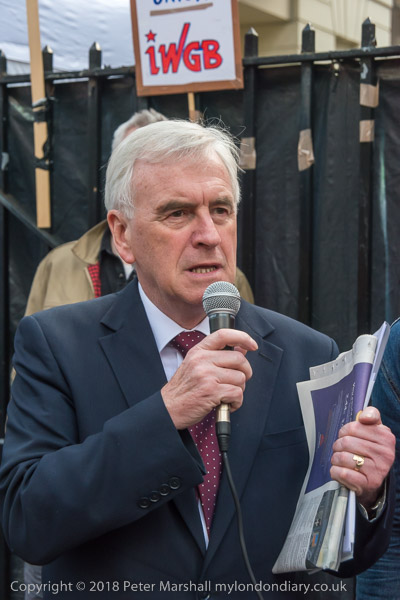
Among the speakers at the gates of Senate House was Shadow Chancellor John McDonnell who also brought support from Jeremy Corbyn and promised a Labour government would bring in new trade union laws and end the unfairness of outsourcing. Unfortunately should we now get a Labour government at the next election its policies will be more about protecting company profits than protecting workers.
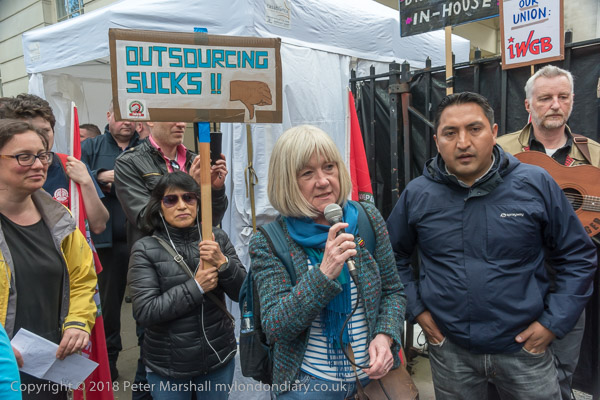
There were plenty of others as well as IWGB members who spoke, and one was a woman from UCU at Goldsmiths University who had come with a large donation from them to the strike fund.
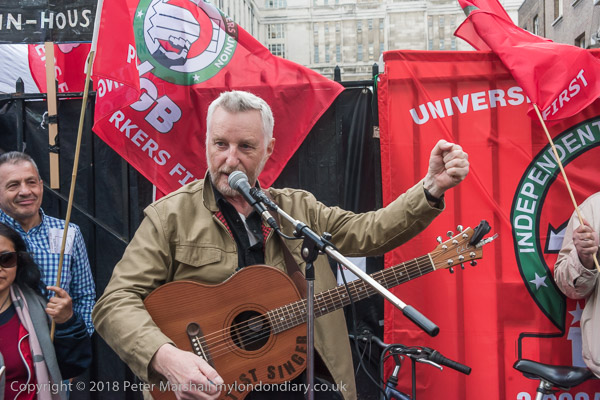
Billy Bragg came to give his support, singing three songs, and got us joining in on some of them, and Archie Shuttlebrace sang with Rebecca Wade Morris. Chip Hamer (Grim Chip) and another of the poets from Poetry on the Picket Line performed some of their work.
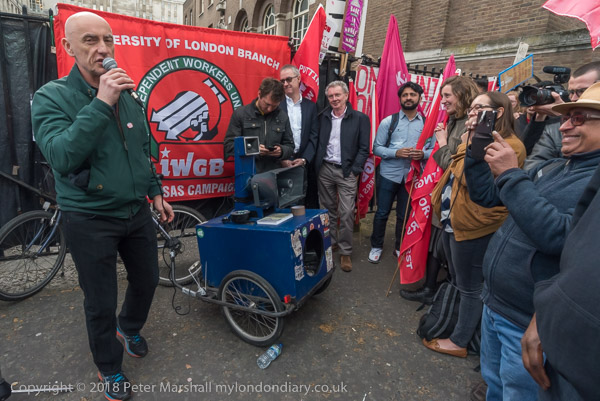
Then it was time for a march around Russell Square, with over 200 people briefly holding up traffic. The march was lead by the yellow Precarious Workers Mobile three-wheeler and a samba band.
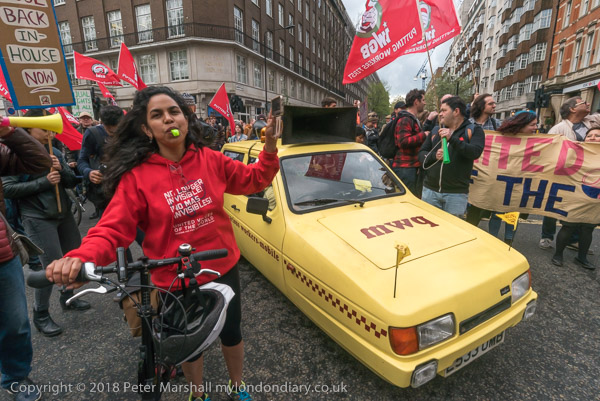
They returned to the gates of Stewart House and the rally continued with more music, poetry and dancing.
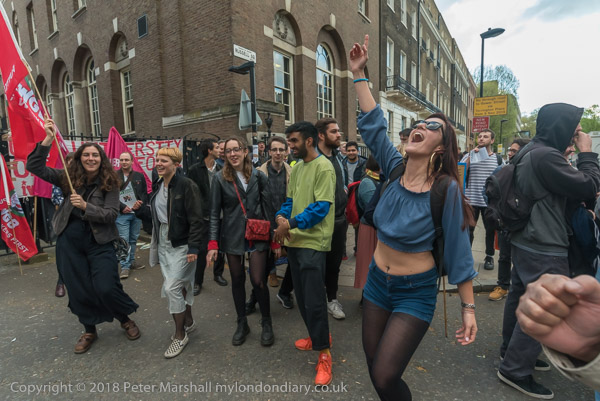
More at End outsourcing at University of London
